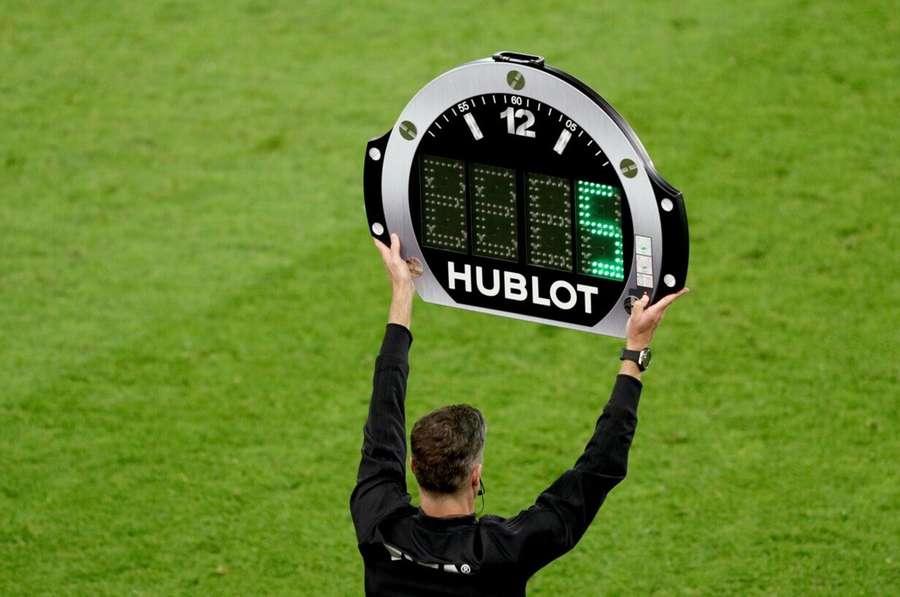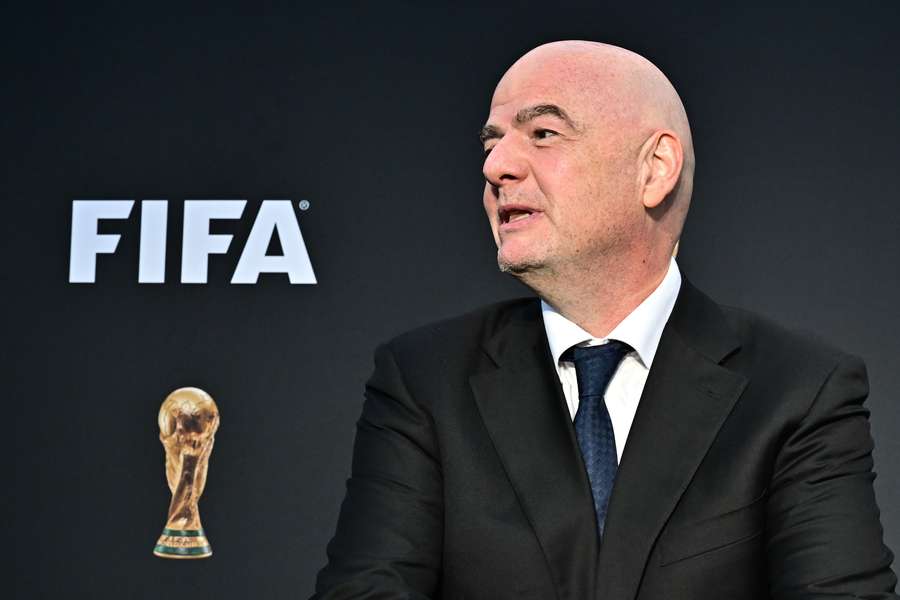'Makes no sense': Players worry as FIFA pushes for more injury time

"We will see how it goes, but it makes no sense whatsoever," De Bruyne warned.
Modern football is an extreme sport
Around 11 kilometres per game, three times a week, up to 60 times a season. In the worst case, this is what a year looks like for a professional footballer at the top level.
An extreme strain on joints, muscles and kneecaps. Mentally, too, the dense match schedules are a real challenge. Time with the family? The Club World Cup and League Cup have something to say about that.
Training sessions at many of Europe's top clubs aren't the same - the focus is now mostly on regeneration and visits to the physio and masseur.
Football is a strenuous sport. The pitch is huge, each game lasts 90 minutes. Of course, the ball is often not on the pitch. There are small interruptions due to throw-ins, standard situations, calf cramps, discussions with the referee, VAR controls, and goalkeepers, who often waste time.
Between 50 and 60 minutes, football is actually played at the European top level. The rest? Welcome breathers for overstressed top athletes.
Top professionals criticise harshly
FIFA and IFAB are, however, thorny about the difference between net and gross playing time. At the 2022 World Cup in Qatar, they tested so-called 'monster playing times' for the first time on the big stage.
One minute of injury time after the first half, three minutes after the second half. As long as nothing out of the ordinary happened, that's how it's been done all over the world in the past decades.
Six or seven minutes of injury time, though? The absolute measure.
In Qatar, however, they were suddenly the rule. "We want to combat time-wasting. We want the fans to enjoy the game. (The new approach) is very much appreciated everywhere," FIFA President Gianni Infantino said in March this year.
A very subjective perception - because neither the players' union FIFPro, nor top professionals like Raphael Varane or Kevin de Bruyne are convinced by the new approach, on the contrary.
After the Community Shield match between Arsenal and Man City, De Bruyne summed it up: "We have talked about it with the Arsenal players and even with the referees - they don't want to do it at all, but it is the new rule and that's the way it is.
"In a game like today, there were even three minutes of injury time in the first half. You can only imagine what happens when you play against a weaker team that has to stall all the time. Today we played 12 to 13 minutes longer. I can imagine games that last 20 to 25 minutes extra."
De Bruyne added: "We'll see how it goes, but it makes no sense whatsoever."
More football - does that automatically mean more entertainment? Does this simple calculation add up? Not at all, as Varane assures us: "We managers and players have been talking for many years about our concerns that there are too many games, that the fixture list is overcrowded and that the physical and psychological well-being of the players is in danger.
"Despite our earlier feedback, they have now recommended for next season: longer games, more intensity and less emotion for the players to show."
Varane himself retired from the French national team at the age of 29 - because the strain became too much for him. He likened the commute between club and national team to being in a "washing machine".
Time's running out
For FIFA, the spectacle is in the foreground. They are trying to market football more outside Europe and South America - the Arab region, China and the US determine what happens on the global stock market. Holding tournaments there, moving the masses: that would guarantee FIFA large additional revenues.
But football is a strange sport. For example, it is a "low-scoring game". Goals are a relative rarity. And that is precisely why they move the masses. For a market that tends to want to produce and offer more and more - this is not a romantic quality, but a highly suspicious one.
Which is why there is also talk of adapting the offside rule, which would probably lead to more goals.
Sometimes virtually nothing happens on the pitch. Nevertheless, spectators have the time of their lives. Football lives from the atmosphere in the stands, from missed opportunities, inexplicable mistakes, shattered dreams and the glorious, rare moments when everything comes together, when a move or an individual action turns everything that had been seen up to that point on its head.

Time-wasting is a great evil, no question about it. FIFA announced that there should be a learning effect through the extremely long periods of time added. The players should learn that time-wasting is of no use because the missed time will be made up anyway. In principle, this is a nice idea.
But FIFA do not address the justified concerns of the players and the players' union - and thus a great opportunity is missed. There are no efforts to regulate the match schedule and ensure that fewer matches take place. Instead, they are planning an additional Club World Cup with 32 teams from December.
Is the world governing body seriously concerned about the attractiveness of the game? Equal financial opportunities for the clubs, the regulation of money flows from states with troubling human rights records and fair qualification for international competitions - aren't these really the building sites FIFA should be working on? If these developments are not stopped, football will inevitably be shaken to its core.

